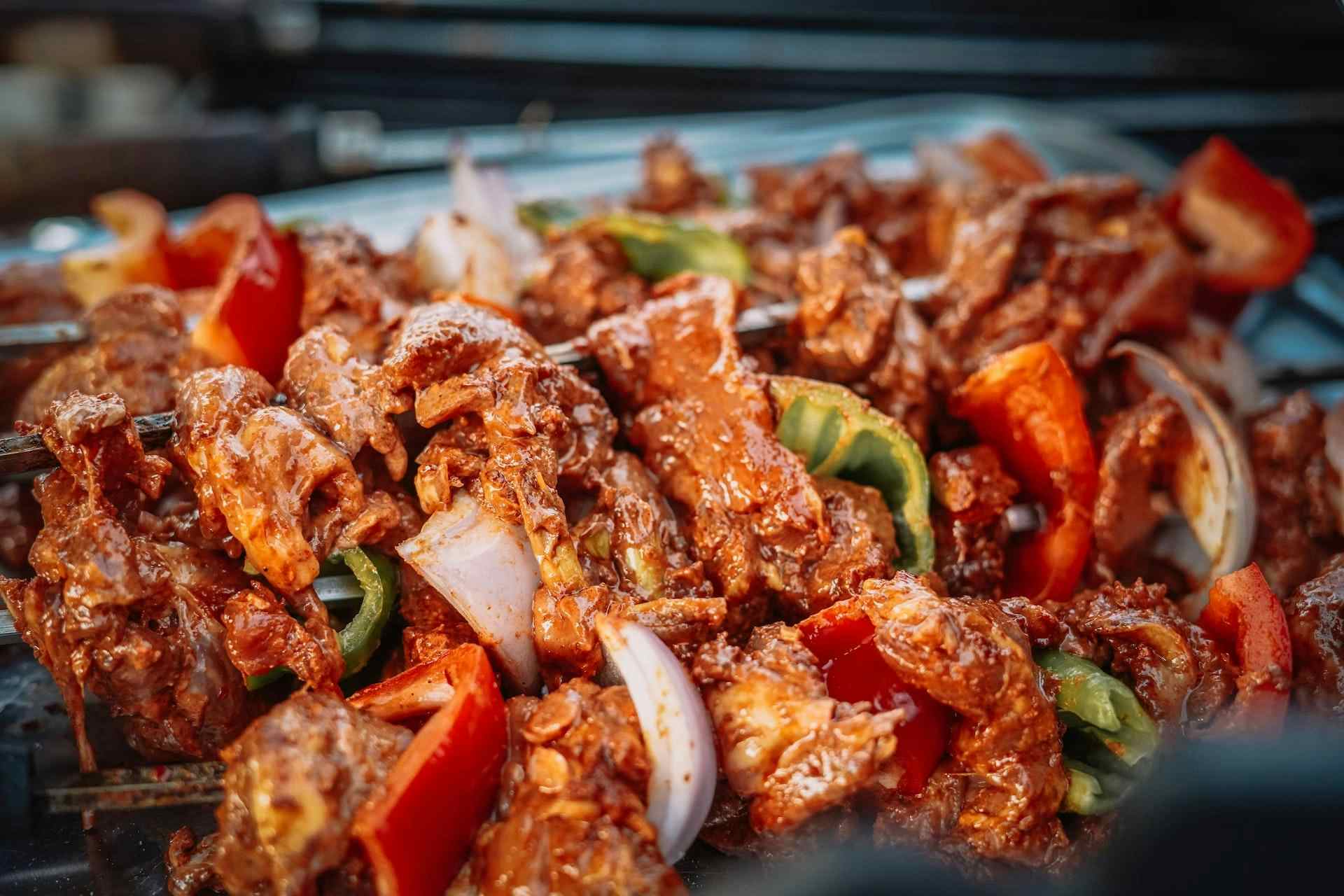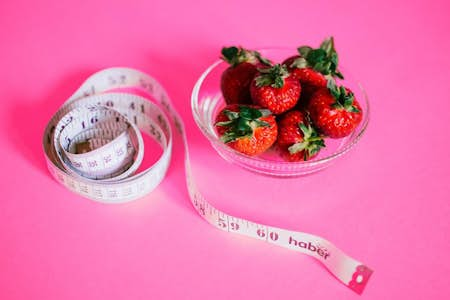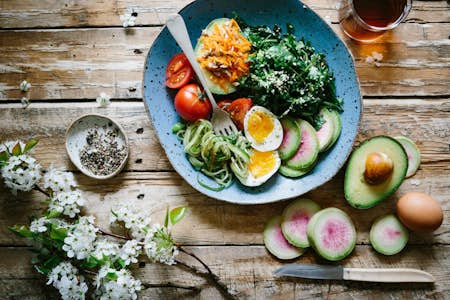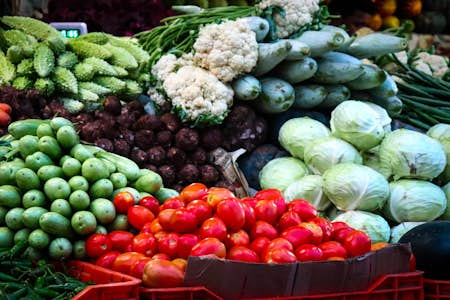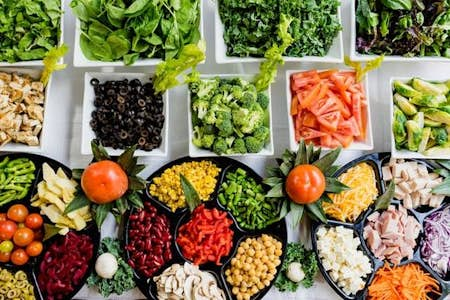Eating a balanced and varied diet is vital to a healthy lifestyle, but what does this mean for those with IBS when certain foods are deemed off-limits? With so much dietary advice available, choosing what to consume to avoid an IBS flare-up isn't always as simple as just trusting your gut.
Whether you're looking for the latest vitamins and supplements, want to stock up on over the counter medication, or are looking for a digital solution for your regular prescription, our providers have you covered. Compare brands below and click on your favourite to shop their best offers now!
What is IBS?
IBS, or irritable bowel syndrome, is a gastrointestinal condition which affects around 13 million people in the UK. While it is more common for symptoms to first occur in your 20s and 30s, IBS can affect those of all ages, causing abdominal pain or discomfort. Other symptoms of IBS can include:
- Constipation (for those with IBS-C)
- Diarrhoea (for those with IBS-D)
- Fatigue
- Gas and bloating
- Backache
- Bladder problems
- Changes in and difficulty controlling bowel movement
- Trouble sleeping
- Food intolerances
There's no exact, single known cause of IBS, but research suggests that several factors can trigger the disorder. Early stressful life events, an under or overactive immune system, bacterial infections in the digestive tract, or the result of food poisoning or gastroenteritis can all contribute to the condition's onset.
As of March 2023, there’s no cure for IBS, but dietary changes and medication to reduce bowel spasms can help alleviate symptoms. But what foods are in or out to help control IBS symptoms, especially if you're over 50?
Why do certain foods trigger IBS symptoms?
Specific foods can trigger IBS symptoms because they’re considered high-FODMAP, which stands for fermentable oligosaccharides, disaccharides, monosaccharides and polyols. FODMAPs are a type of short-chain carbohydrate (sugars) that the small intestine struggles to digest. High-FODMAP foods, therefore, often cause IBS flare-ups.
Because there’s no “one size fits all” answer when it comes to foods which can make symptoms of IBS better or worse, contacting a registered dietitian or gastroenterologist is the best way to find out what foods you should be avoiding. This being said, following a low-FODMAP diet is universally recommended by dietitians and has been proven effective for most with this chronic condition. One study found that a low-FODMAP diet reduced symptoms in 76% of those with IBS.
Speaking to Health Times about the low-FODMAP approach, Nutrition Coach Ruth Reynolds said: “The low FODMAP approach can really help but it’s quite restrictive and should only be followed for about two weeks. When the symptoms subside you can then build up your microbiome again with prebiotic and probiotic foods or supplements. If symptoms persist a stool or breath test can check whether you have a bacterial overgrowth that will need natural antimicrobials or further intervention.”
What foods irritate IBS?
Choosing the right diet to support your lifestyle doesn’t have to mean cutting out all of your favourites just because you have IBS. Instead, opting for IBS-friendly alternatives means you can still indulge in various foods whilst avoiding tummy troubles.
Certain high-protein diets
Eating a high-protein diet is especially important for supporting muscle health as we age. But, of course, too much of anything isn't a good thing, and the same goes for protein. Overdoing it can worsen IBS, as an excessive amount of protein means that you're likely getting less fibre into your diet, leading to constipation.
No foods are inheritably "good" or "bad", but consuming the wrong protein sources for your body can also trigger IBS symptoms. For example, if you follow a plant-based diet, beans and legumes such as lentils might be a staple, and whilst packed with protein, these could be IBS food triggers. Specific proteins like red meat are another common IBS food trigger, as are some dairy products, such as ice cream, which contain lactose.
There are, however, proteins recommended for those with IBS. To avoid flare-ups, you should eat these foods instead:
- Lean meats such as chicken or turkey
- Fish
- Hard cheeses such as cheddar and mozzarella
- Eggs
- Firm tofu
- Small amounts of well-rinsed, drained, canned chickpeas
- Lactose-free or plant-based milks such as almond, hemp, or coconut
Spicy, fried and processed foods
Fatty, processed, and spicy foods, often some of the key components of takeaways, are prolific for triggering IBS symptoms. But IBS doesn’t mean having to go hungry the next time you go for a meal out or fancy a takeaway night. Instead, the best way to manage your symptoms is to plan ahead by looking at the menu to avoid options that may trigger your IBS. Plus, with so many options available to cater for the diversity of dietary needs in the UK, finding somewhere you still love won’t be difficult.
Gluten
Gluten-free may seem like the latest gut health related buzzword, but what does it actually mean for those who are affected by it? Found in the wheat plant and some other grains such as rye and barley, gluten is a protein that occurs naturally in many foods. For those with coeliac disease, eating foods which contain gluten can cause them to become very unwell, but it can also set off symptoms for IBS sufferers.
Whilst naturally occurring, gluten can be extracted from certain foods, such as bread and pasta, to create gluten-free versions. Fortunately, you can find a wide range of gluten-free alternatives in most supermarkets and restaurants today, not to mention there are plenty of whole-grain options, such as brown rice, while things like potatoes, quinoa and most porridge oats are naturally gluten-free, too.
High-FODMAP fruit and vegetables
A fresh glass of fruit juice with your cereal might be something you enjoy in the morning, but if you experience IBS, your breakfast could be interfering with your digestive system. Fruit juice especially can be an issue due to its high concentration of fructose, particularly if apple juice is your drink of choice. While fruit tastes terrific and contains many vitamins and minerals, consuming more than three servings daily is not recommended if you have IBS. You should also avoid high-FODMAP fruits like watermelons, pears, prunes and stone fruits like plums.
Instead, it would help if you stuck to low-fructose fruits in their natural form. Here are some low-FODMAP fruit options to go for:
- Blueberries
- Bananas
- Strawberries
- Oranges
- Kiwis
- Cranberry is one of the better alternatives if you want to treat yourself to a glass of juice.
Some vegetables are also considered high-FODMAP foods, including cauliflower, mushrooms, and leeks. Onion and garlic are also on the list of high-FODMAP foods as they’re both considered high in fructans. Fortunately, Christmas favourite Brussels sprouts and other cruciferous vegetables such as bok choy and green beans can be eaten on a low-FODMAP diet.
Artificial sweeteners
It may seem like the healthier option to use artificial sweeteners in your tea and coffee instead of sugar. Whilst artificial sweeteners can enhance flavour, these often contain ingredients which can be detrimental to your gut if you have IBS. Sweeteners found in our food can include xylitol, sorbitol and high fructose corn syrup, so you should avoid them. Keep an eye out for labels which contain these ingredients, as they could be causing an IBS flare.
Probiotics for IBS: fad or low-FODMAP friendly?
With ageing comes a new range of dietary supplements you're encouraged to take. Still, in a world full of jargon and conflicting advice, probiotics can often be seen as just another fad. However, they have been shown as helpful as a part of IBS treatment. Probiotics, not to be confused with prebiotics (these feed the good bacteria), are made up of good bacteria to help the body function as it should. Probiotics can be taken as a supplement or from fermented foods such as pickles, sauerkraut, or kefir. But, before you take a probiotic supplement, consult your doctor to see if this would help meet your specific needs. You can learn more about probiotics in our article 5 ways to reboot your digestive system.
A recent diagnosis of IBS doesn't have to mean you can no longer enjoy the foods you've loved your entire life. Plus, making a lifestyle change and finding new favourite alternatives will soon get you and your gut feeling good again.

